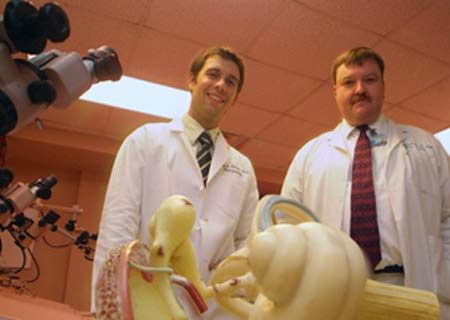Many patients undergoing organ transplants have to bear the effects of their transplant-related drug regimes in the form of hearing loss. A team from the Georgia Health Sciences University has disclosed that cochlear implants may be safe and effective for certain organ-transplant patients who have encountered hearing loss.
The scientists inspected 2 cases of a 47 year-old woman and an elderly man aged 50. In both the instances, the investigators found that the transplant patients seemingly attained their sense of hearing in the absence of other health risks. This effect was attained by waiting for a minimum of 6 months before receiving the cochlear implants. Another observation seen in the study was that patients consuming the right antibiotic prior to and after cochlear implants may also restore their hearing loss devoid of other risks.
“This study adds to the growing evidence that successful cochlear implantation can be achieved in appropriately selected renal transplant patients. They have continued to use the device selectively in transplant patients and plan a larger, retrospective study,” shared Dr. Brian J. McKinnon, otologist and neurotologist at the Medical College of Georgia at Georgia Health Sciences University.
A cochlear implant procedure, presently measuring less than an inch with respect to diameter, is positioned at the back of ears in the middle region between the skull and the scalp. A short lead is introduced into the inner ear via the skull. This mechanism is usually used for patients after conventional hearing aids fail to work.
Patients undergoing transplants are generally prescribed drugs for the adaptation of the new organ into the body. However, the drugs expose the ears to greater vulnerability in the process. The findings in this study showed that cochlear implants may work for such patients if appropriate measures are implemented. The study is published in the American Journal of Otolaryngology.

